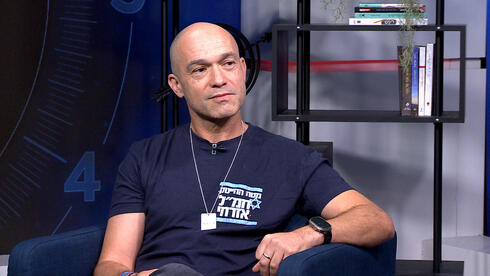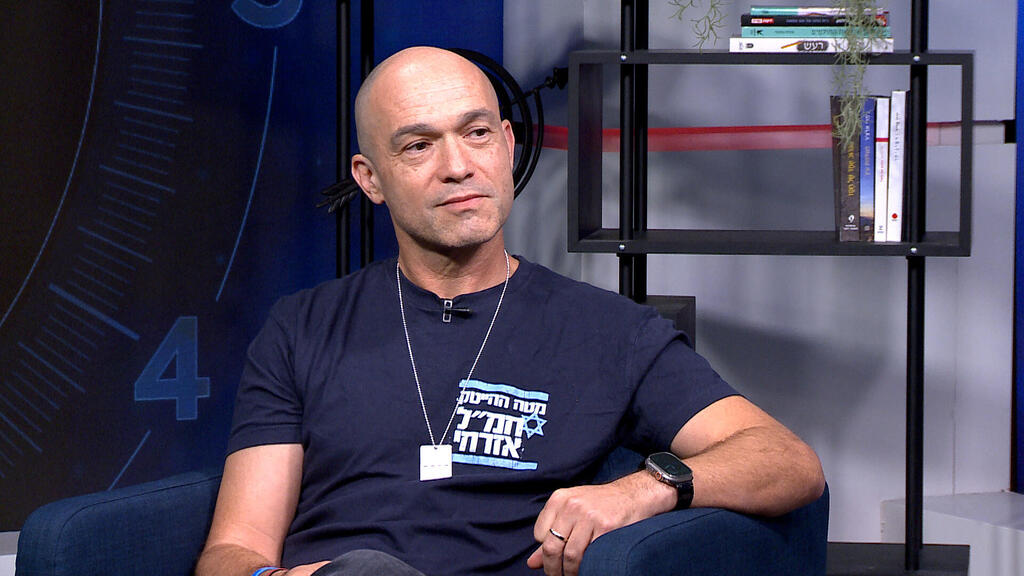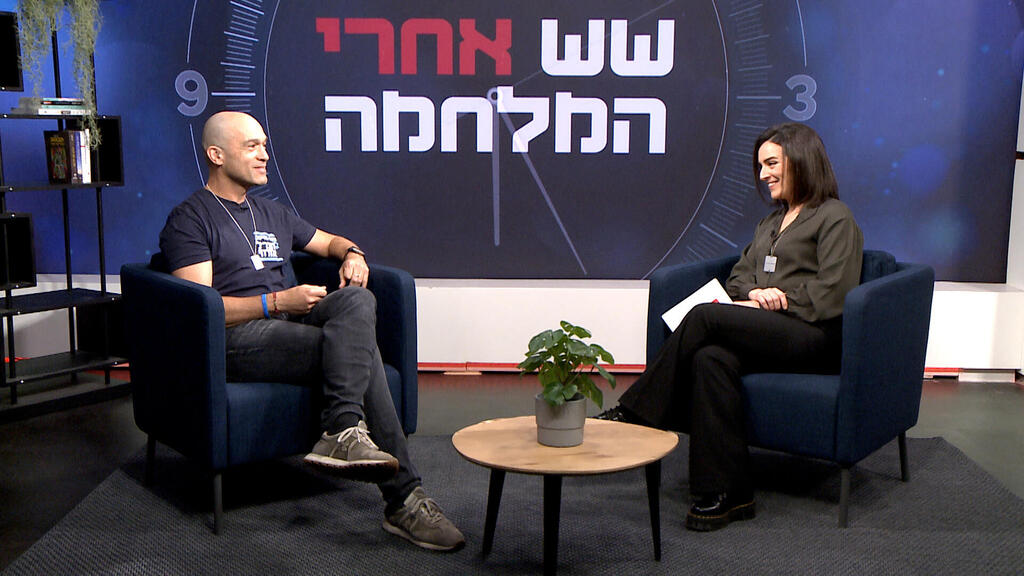
Six After War
Gigi Levy-Weiss: "The 7th of October and what followed made me more optimistic"
As part of Calcalist and Poalim Tech's series of interviews "Six After War", Gigi Levy-Weiss, General Partner at VC fund NFX, discussed with Poalim Tech CEO Michal Kissos Hertzog how to get high-tech back on track after the war
"The war came at a bad time in every respect, also for Israeli high-tech," said Gigi Levy-Weiss, General Partner at the NFX venture capital fund, in a conversation about entrepreneurship during wartime with Michal Kissos Hertzog, CEO of Poalim Tech. The conversation took place as part of Calcalist and Poalim Tech's "Six After the War" series of interviews.
"In the ten months prior to the seventh of October, Israeli high-tech opened a gap compared to the rest of the world. At the beginning of 2023, renewed growth began in the world - investments, new companies, innovation, mainly thanks to a wave of AI-based companies. At the same time, there was a return of investments across the world, mainly in Silicon Valley. However, in Israel, due to the judicial coup, there was a decrease in investments and the number of new companies which is mainly due to the fact that investors like certainty.
"In the months leading up to the war, entrepreneurs were busy protesting and trying to understand what would happen to the country, so there was no appetite to establish companies. The legal and economic uncertainty caused investors to stay away. NFX operates both in Silicon Valley and in Israel, and we saw that already on the seventh of October the situation was not good, and from the seventh of October there was an almost complete stop of Investments here, close to zero companies are being established and many companies are struggling due to the fact that the entrepreneurs were drafted into the reserves. If there was a storm before then now it is even more severe. Even the best companies are suffering from a drop in productivity of about 35%. Between 15%-20% of the employees are in the reserves. All of this puts Israeli high-tech in a very tough spot."
And how do we get out of it?
"Even if we start with the premise that as soon as the war ends, high-tech goes back to work, we need to make it flourish again. This means helping companies that have been delayed, establishing new companies and ensuring a large flow of money to existing and young companies. This must come with a full cooperation between the government and the private sector. I am optimistic because in the end the base of the industry here is very strong: the strength and ability of the entrepreneurs and the knowledge here make me think that we can succeed, but it requires a lot of work on the part of the government, especially in the areas of providing certainty and lowering regulatory barriers. We have approached the government with requests to reduce taxation uncertainty for funds, tax breaks for entrepreneurs from abroad who want to set up their companies here, and a wave of immigration that will potentially include good technologists. All this needs to happen combined with the organization of the industry and with many new investors who may want to come and invest in Israel. If we do all these things, we will reduce uncertainty, create a very clear vector going forward and help the establishment of many new companies. Because of the judicial coup and the war, the current rate of establishing new companies in Israel is lower than it was in 2003."
"The fastest startup"
Recently, you were a partner in the establishment of the civilian war room to aid in the war. The question arises, how do you turn the good interface created between the civil bodies and the state to help in the rehabilitation of high-tech?
"What characterized the relationship between the state and high-tech over the years was mainly non interference. The private sector worked, brought money and built companies, and the state did not interfere and sometimes helped a little, and it worked. We need to do this more. In the last two months, we have established the Brothers in Arms organization, which is one of the most amazing organizations that I have co-founded, perhaps the fastest startup I have been involved in, which grew from zero to 15,000 people in less than a week and touches all areas of life. At first we worked in a complete vacuum, everything came from the field, from the soldiers and families. Later we also received requests from above - from local authorities and the state, and as of today there is some balance. The state is still not functioning as we would like and we continue to help, and have no intention of leaving. Our insight after two months is that the state will have to take care of the big things because the private sector will not arrange housing or pave roads. But regarding everything around it - education, employment, business, community and also some of the areas of mental support, we and other amazing organizations that work in the field, intend to continue working."
"We will be united from below"
A communal, social and human unity was created around the crisis. How will we maintain it for the day after?
"We are at a critical juncture. If we take the right step, we can emerge with unity which is the basis for rebuilding the country, but if we take the wrong turn we will emerge into a divided country with more anger and hatred, and if there is anything that keeps me up at night it is this fear. We know how to defeat the enemies from the outside, but the lack of internal unity and division is what throughout history has hurt the people of Israel the most and is what may hurt us going forward.
"And so today we are trying to 'lock in' this solidarity, to preserve it, through action and understanding that we are here together and have a common destiny and are trying to make sure that even when the politicians return to division, we will be united from below."
The events of October 7 shattered the concepts of many people in many fields. What about you?
"The 7th of October and what followed made me more optimistic. In the ten months before, I felt that the state was acting contrary to what was good for its citizens and when I saw an attempt to change the rules of the game by supposedly democratic means, and I saw how companies began to register abroad and entrepreneurs left the country and a murky wave began that I did not know how it would end. I also lost a bit of optimism. But since October 7th I have been meeting amazing people among our volunteers and those of other organizations and seeing how people open their hearts, pockets and souls and embrace the other. And I see our partners who share our fate, the Druze and the Bedouin who help and I see the love and embrace of American Jewry and this gives me faith that it can be really good here. And that means a leadership that really cares about the citizens, a leadership that unites and does not divide and people who come to work in politics and public service with a mission and not just for jobs. Let there be a process of rebuilding the Gaza border area and the north not as a periphery but as an extension of what is happening in Tel Aviv, in the high-tech nation, and that will get us out of this terrible event we have been in and towards a better 75 years going forward.
"There was a feeling that we had gone off the rails a little and if we just make the right decisions we will get back on a track that will take us to 75 better years and we will be able to create a constitutional infrastructure that will prevent us from fighting.
"This is the image I try to go to sleep with at night when it's difficult, and this is the image I wake up with in the morning and for which I have currently put aside most of my high-tech activities in favor of what we are doing in the war room and trying to do in the country."















